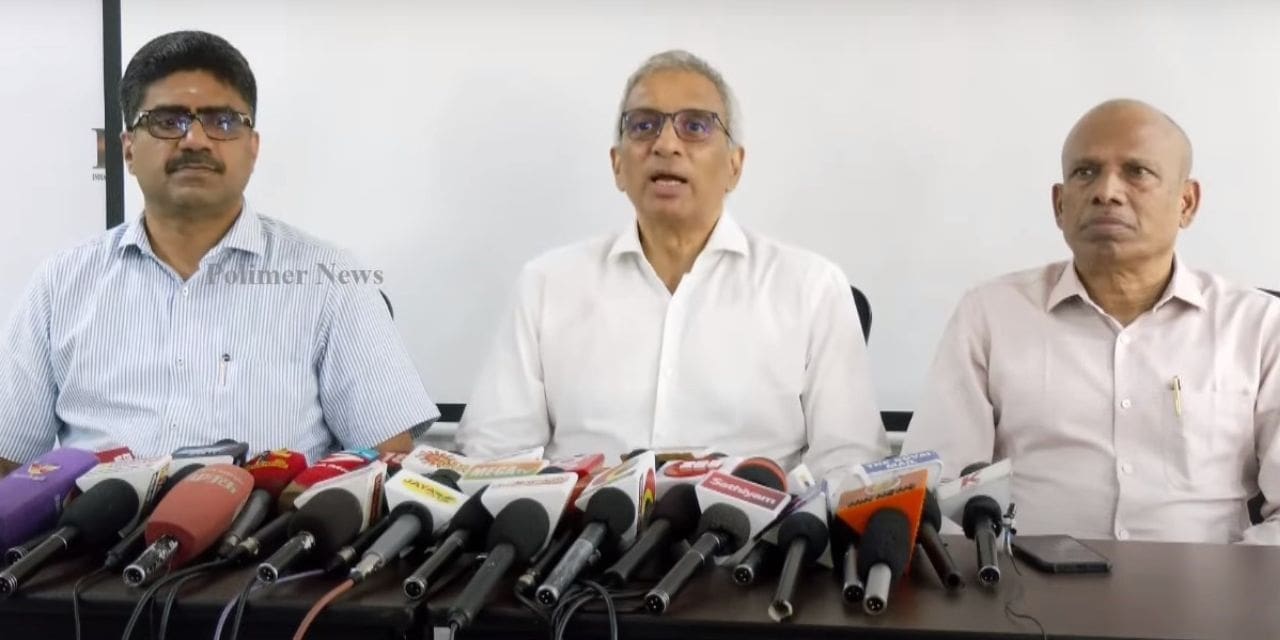The Indian textiles and clothing industry that provides jobs to over 110 million people, the second largest employment provider next to agriculture, fetching 44 billion US$ forex, over Rs.25,000 crores GST revenue, etc., is currently facing an unprecedented financial stress mainly due to the prolonged Russian-Ukraine war that impacted EU and US markets, higher inflation, slow-down in global economy, 11% import duty levied on cotton and disruption in the supply of manmade fibres due to certain practical difficulties in implementing Quality Control Orders. The
cumulative impacts are an 18% drop in total T & C exports, 50% drop in yarn exports, 23% drop in cotton textiles exports when compared to the previous year.
The country currently has over 30% excess capacity across the textile value chain especially in the capital-intensive sectors like spinning and weaving. The banks have given red alerts to most of the textile units across the country owing to the unforeseen financial stress. The repayment for the short-term loans extended during the COVID period has significantly increased the financial burden of the textile industry. A majority of the SME spinning mills in Tamil nadu have announced stoppage of production and yarn sales from 15th July 2023. The high volatility in cotton price and speculation of trade have made the spinning sector to erode huge working capital as the cotton prices have crashed from Rs.63,000 per candy of 356 kgs during April 2023 to Rs. 56,000/- per candy during July 2023. Even for the current cotton prices, the mills are incurring loss to the tune of Rs.10 to 20 per kg of yarn. The steep increase in power tariff especially for the SME units has made over 2000 spinning mills in Tamilnadu uncompetitive as these mills already incur Rs.3/- to Rs.6/- per kg for sourcing the entire raw material from Gujarat, Maharashtra and
other States.
Addressing the joint Press Meet held today at Coimbatore, Mr.T.Rajkumar, Chairman, Confederation of Indian Textile Industry and Mr. Ravi Sam, Chairman, The Southern India Mills’ Association stated that the textiles and clothing industry that normally work at 3% to 6% profit margin is currently incurring 5% to 10% loss. They stated that the industry urgently needs interim financial relief to prevent the units becoming NPAs and causing irreparable trouble for both the financial institutions and the textile units especially the SME units. They stated that over 75% of the units of the country are MSME in nature. They also sought relief measures from the Government of Tamil nadu by way of certain relief measures in the electricity tariff.
CITI and SIMA Chairmen, while appreciating the various initiatives taken by the Union Government especially expediting the FTA negotiations with EU, UK, Canada, Switzerland and other countries to get a tariff relief which currently ranging from 8% to 26% and boost exports and the State Government especially the steps taken to attract investments by announcing Industrial and MSME policies and announcing special scheme for technical textiles. They stated that the real benefit of FTAs could be reaped only during 2024 and the textile units cannot survive till such time without any reliefs from both the Central and State Governments.
They have sought the following relief measures from the Central Government:-
1) Removal of 11% import duty levied on cotton
2) Resolve QCO issues and make available MMF raw material at international price to have a level playing field.
The relief measures sought by Mr.T.Rajkumar and Mr. Ravi Sam from the Tamil nadu Government are:-
1. Restriction of the maximum demand charges to 20% or upto the recorded demand whichever is higher in respect of HT textile industrial units.
2. Deferment of the fixed charges of Rs.75, Rs.150 and Rs.550 per kW in various loads for LT III-B textile units.
3. Exemption for LT III-B textile units from the peak hour charges.
They stated that in the meanwhile, a representation was already sent to Indian Banks Association and all the leading financial institutions to extend following necessary support:
1. Extend one-year moratorium for repayment of the principal amount;
2. Convert three-year loans under ECLGS into six-year term loans;
3. Extend necessary financial assistance to mitigate the stress on working capital, on a case to case basis.

